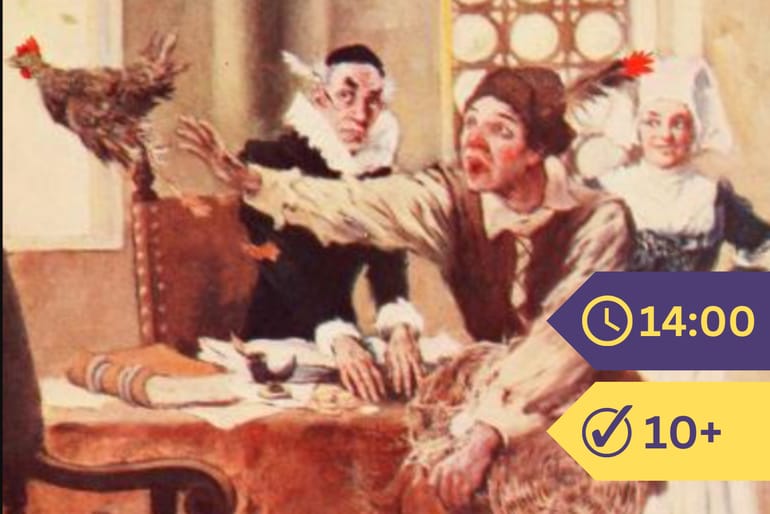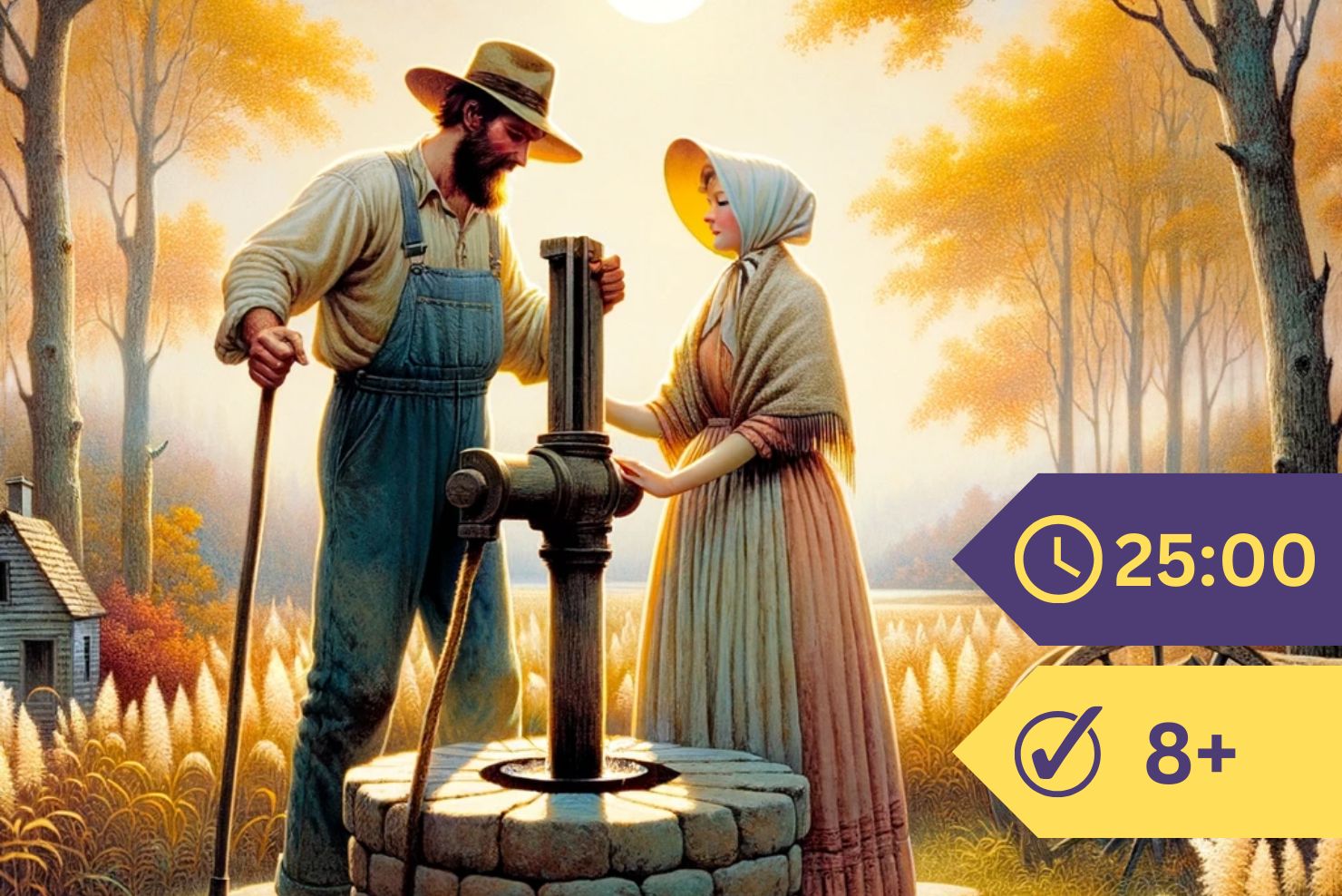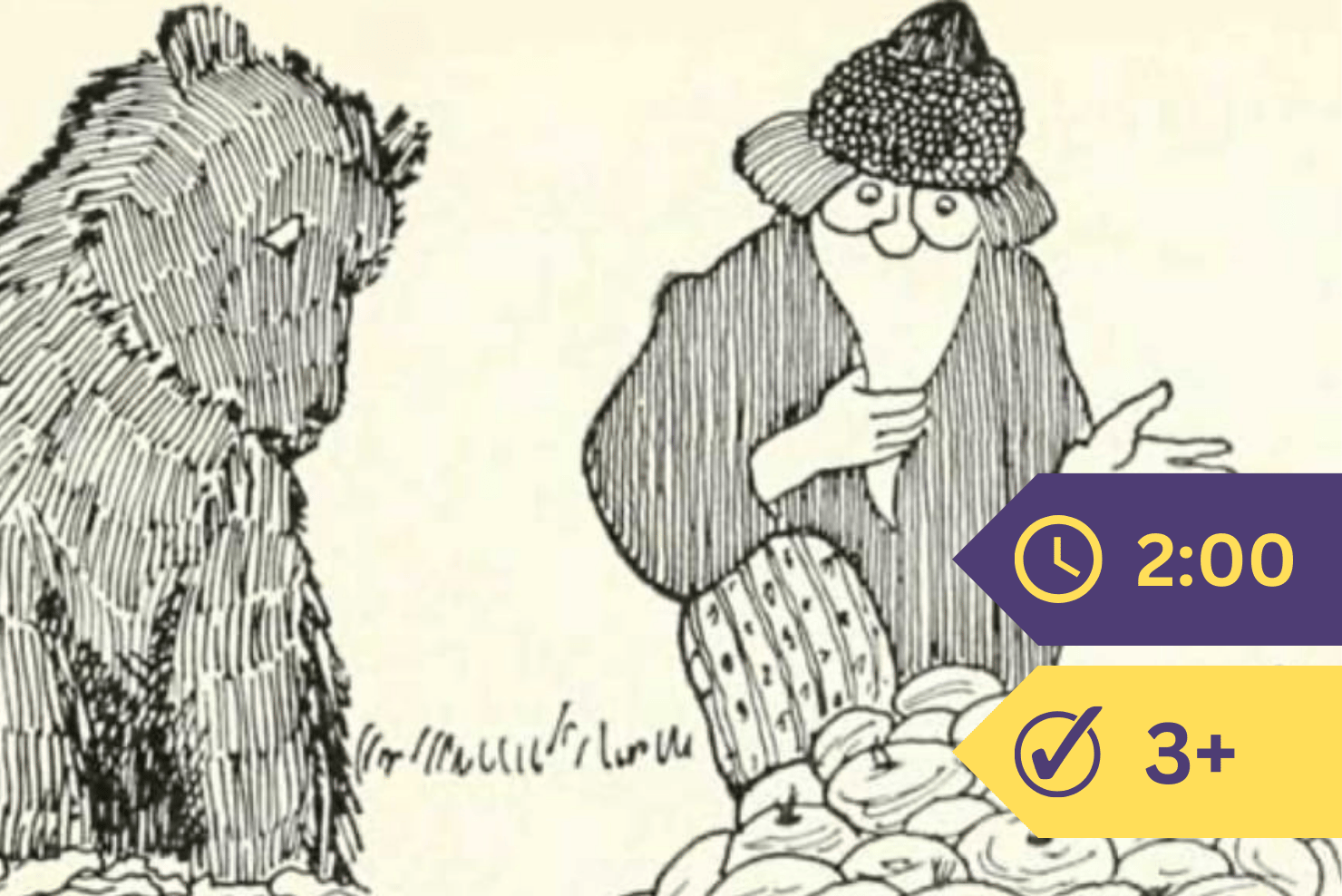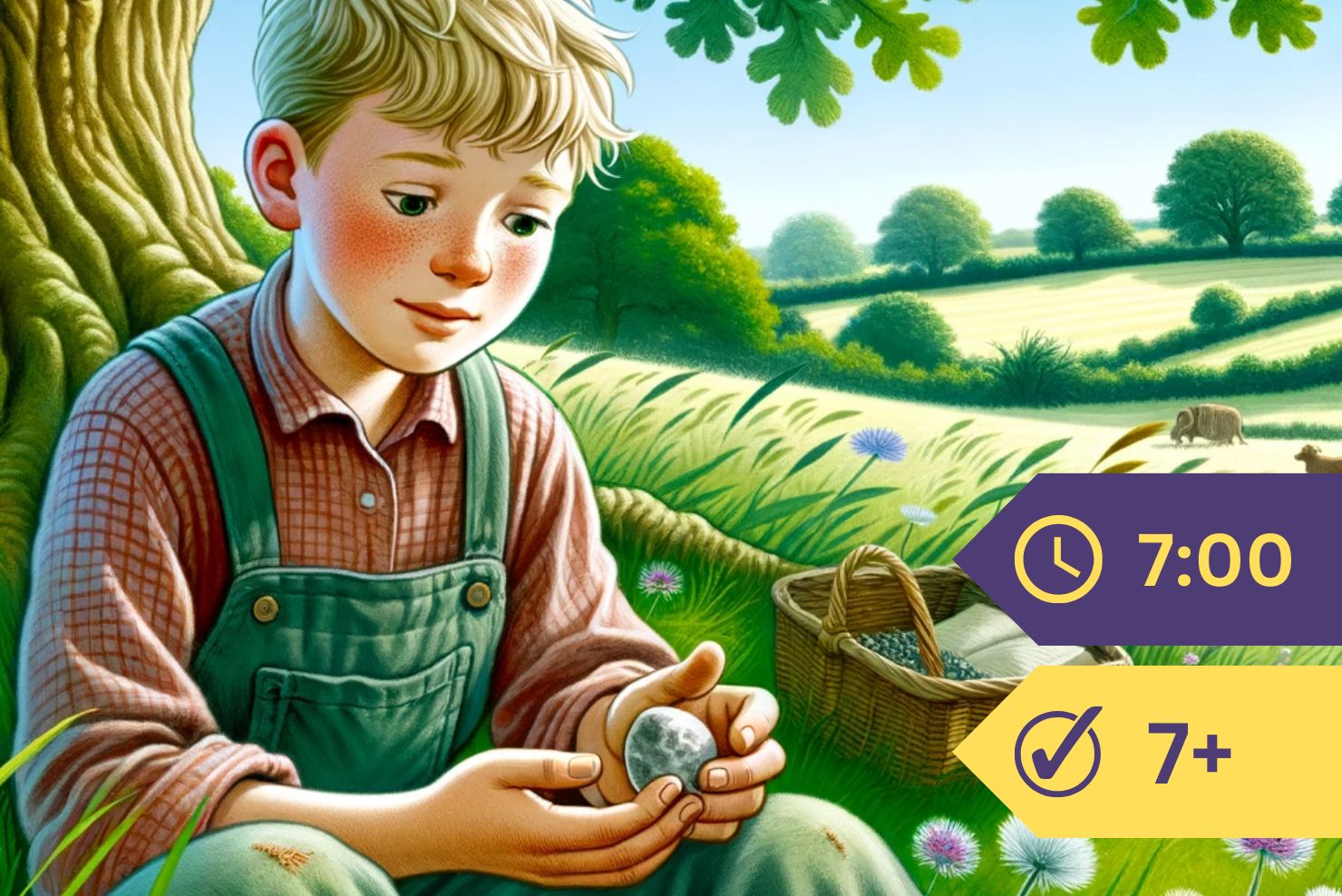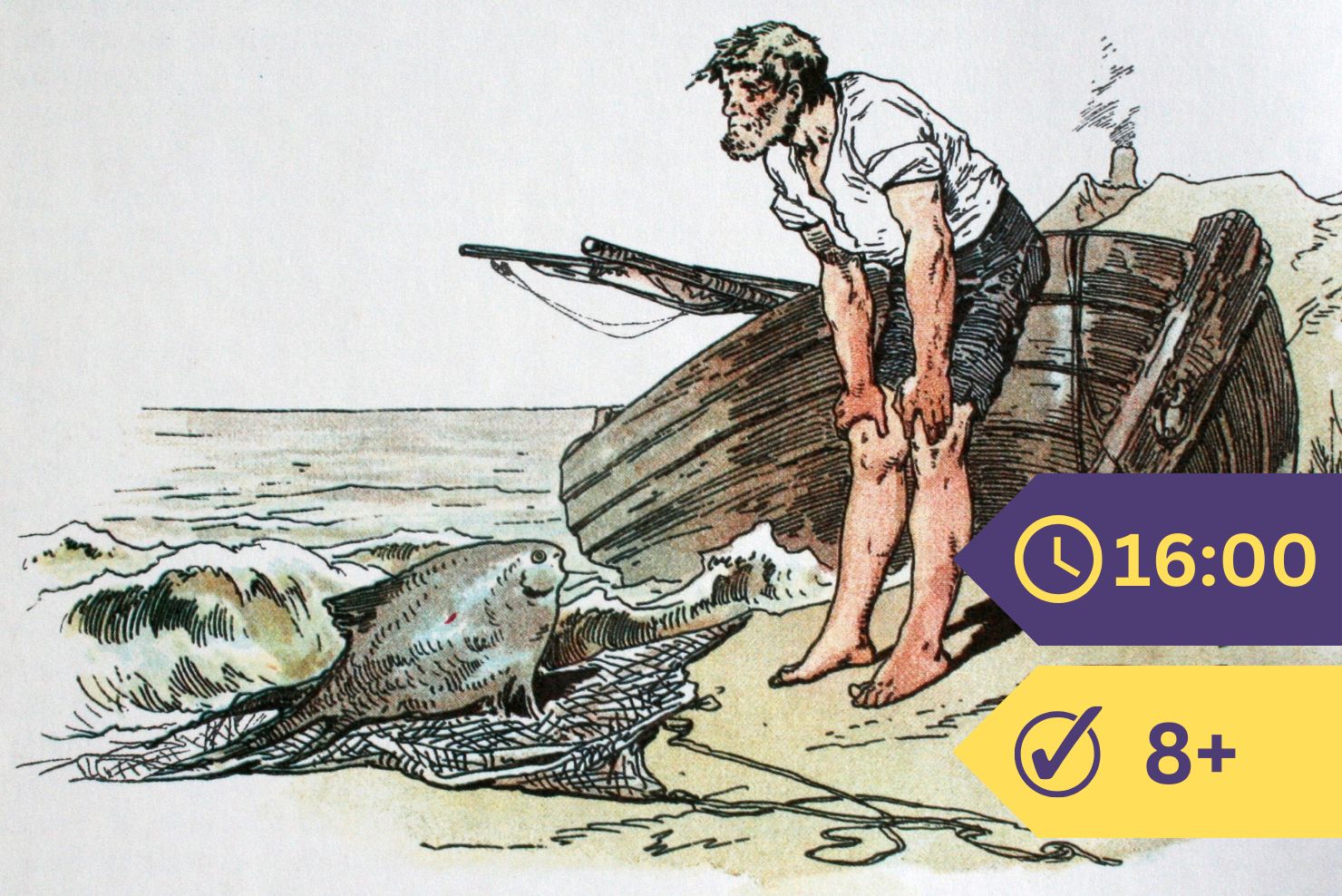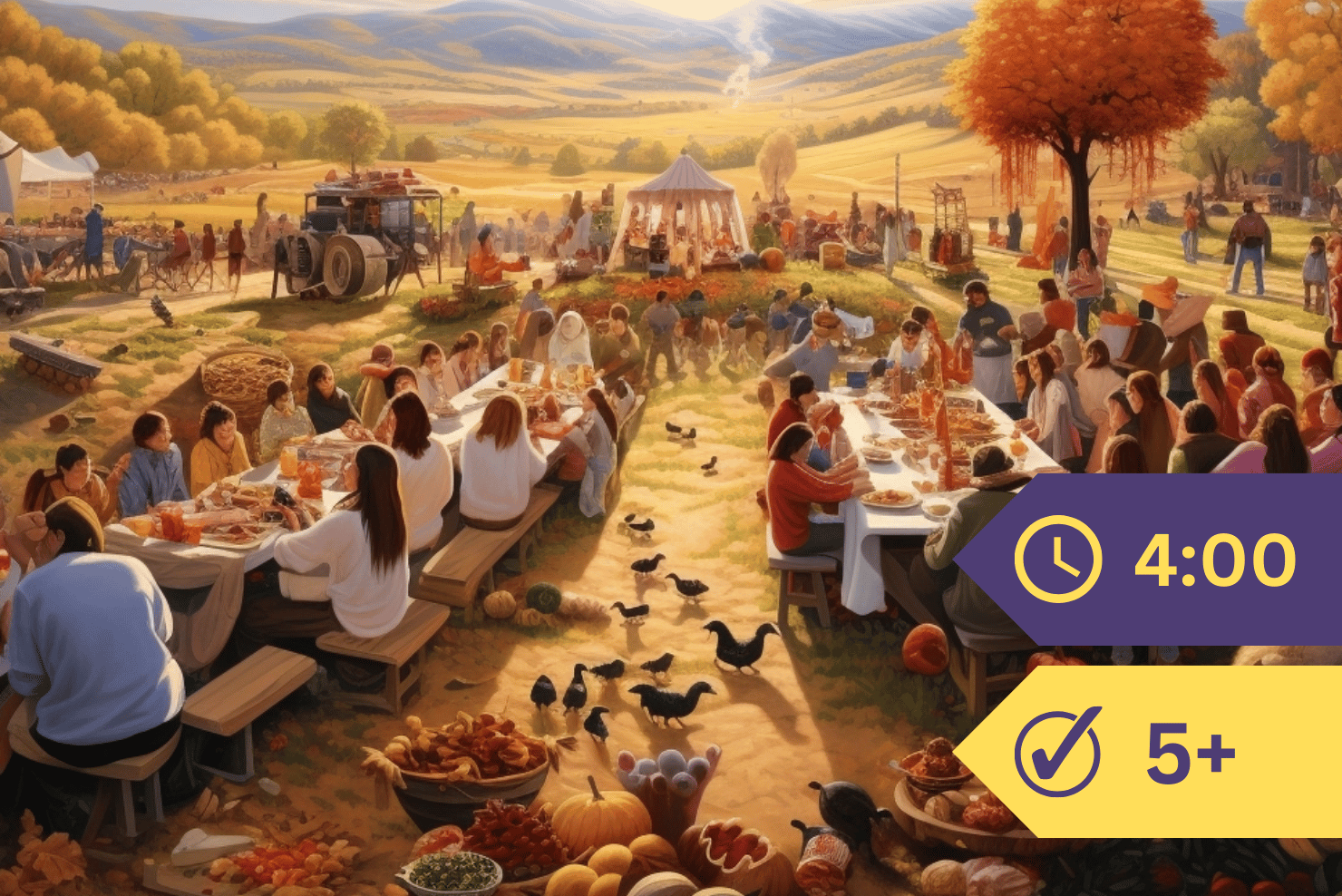Once on a time, a goodman whose name was Hodge rented a field and a farmstead from his lord. And the rent that he paid was this: one pound, one sixpence, one hen, and sixteen eggs.
Come Martinmas morn, be it foul or fair, Hodge, the goodman, was the first to lay down the rent for the steward: pound, sixpence, hen, and eggs all told, till at last when folks would make a certainty, the saying was, “As sure as Hodge’s rent.”
Hodge lived and died, and his son, young Hodge, took his place, ploughing and planting the same field and paying the same rent, though to a different steward; and what folks said in his father’s day, they said in his, “As sure as Hodge’s rent.”
Martinmas days came and Martinmas days went, and young Hodge grew to be old Hodge. Nor was it long before he went the way all must go, and the farmstead and field, the paying of the rent, and the pride in what folks said of it passed on to Hodge, his son.
The young man felt his accountability beyond ordinary. “But what my father and my grandfather did, I shall do,” said he, and no man was before him at the steward’s.
But there’s no foreseeing what will happen in a world so full of haps and mishaps, and a Martinmas day came round when Hodge had but fifteen eggs in the basket where sixteen should be, and every hen’s nest in the steading empty!
“Woe’s me!” cried Hodge. “That the lack of an egg should take away the good name that my father and my grandfather left. And how can I face the steward with the rent short?’
“Hoot-toot!” said his wife, who was a bustling body. “It would be a hard matter if the steward would not forgive you an egg after this many a year of honest dealing. Get up and on your way.”
All she said was but cold comfort to poor Hodge.
“‘As sure as Hodge’s rent’ will never be said again,” he groaned. “And my father and my grandfather in their graves!’
“Where else should they be?” cried the goodwife, “and they dead so long? But have done with your groaning, and I’ll just be sending Jenny, the wean, to her granny’s to beg an egg to complete the count. We’ve done as much and more for Granny,” and she called the lassie and bade her go.
“Be sure you haste on the way and back, unless you would have all the bairnies crying after ye that your father was late with his rent,” said she.
The lassie was away like a bird, and long before they looked to see her, Hodge and his wife spied her hastening home with an egg in her hand.
And Hodge, the goodman, was mightily cheered by the sight.
“‘Tis ill breaking old customs,” said he. “My father before me and his father before him paid pound, pence, hen, and eggs when pound, pence, hen, and eggs were due. And as they did, so will I.” He was just raising his voice to bid the child be cautious when her foot struck a clod of earth, and down she came.
Aye, and down came the egg that was to have saved all! The king himself, as the saying is, could not have put it together again.
‘It was my granny’s last egg, and she bade me go slow and be careful, and you bade me haste, and I do not want the bairnies to cry after me that my father was late with his rent,” sobbed the wean.
“Hoot-toot!” said the mother. “There are other eggs in the world. And I’ll be stepping to Dame Trotter’s to borrow one till the morrow’s morn.’
‘Tis ill paying rent with other folk’s eggs, be they begged or borrowed,” said poor Hodge, but the goodwife was off and away ere the words were out of his mouth, and there was naught to do but to wait for her to come again.
And much as he had to say against borrowing, Hodge was fairly cast down when his dame was back and brought no egg.
“Other folks must pay rent as well as we,” she said; “and every egg Dame Trotter had was packed and ready for the steward. And what think you I heard her say to her goodman as I came up? ‘Simpkin,’ said she, ‘be at your dressing, and you may beat Hodge to the steward’s yet and win a saying for your bairns.’ But Simpkin was in no haste, and I mistrust me he had not all the silver. Eggs are good, but silver is better with the steward, I’ll warrant ye,” said Hodge’s wife.
“Alack,” said poor Hodge, fetching a heavy sigh. “Another will go before me and another. ‘Tis well that my father and my grandfather did not live to see this day,” said he.
“Hoot-toot! with your father and your grandfather!” cried the goodwife. ‘To my mind, they’ve nothing to do with it. Bestir yourself and trudge to Neighbor Mark.”
“I’ll have naught to do with borrowing,” said Hodge. “There’s no luck in it.”
“But there’s luck in trading,” quoth his dame. “Find out your neighbor’s lack and make an exchange. Your father and your grandfather, too, would tell you that,” said she; and, taking Hodge by the shoulders, she fairly pushed him on his way.
Nor had he gone far when whom should he meet but Neighbor Mark.
“Neighbor Mark,” said Hodge, “do you lack something?”
“Aye, that I do,” said Neighbor Mark.
“Have I it?” asked poor Hodge.
“How do I know?” said Neighbor Mark.
“You would know soon if you asked me,” said Hodge.
“Well then,” said Neighbor Mark, “I lack eggs. I’d even the thought of beating you to the steward’s with the rent this morn, but here I be waiting for hens to lay. Two are on the nest and one is going, and the weans are all watching. But ’tis hard for a man to wait on hens, is it not, Hodge?” said he.
“It is,” said Hodge, “but I’ve no egg”; and bidding Neighbor Mark good day, he went home sorrowful.
‘Tis no use to try,” said he. “The luck has gone from Hodge’s house, and I mistrust me it will never come again.”
“Hoot-toot!” said the goodwife. “‘Tis better to try than to cry, say I. And while you were at your clavers with Neighbor Mark, who should come begging a bit of bonny-clabber but Goody Green? Praise be, there are eggs and to spare at her house! Three of them lying there useless, as it were. It is true that Kate, her kitchen lass, had a mind to stir them into a pudding, but we’ll not leave her time for that. Here’s the silver, and here’s the eggs in one basket, and the brown hen in a basket, too, to please Jenny, poor wean. And here’s Goody Green with a bowl of bonny-clabber, and here am I to keep ye company to the castle for that two make better time than one, everybody knows. Simpkin will have no breath to spare if he gets to the steward before we do.”
Hodge was on the way almost before he knew it, and in spite of all the good dames had to say to one another, and their tongues were never still, the three of them made such speed that they were soon in sight of Goody’s cot.
The door was wide open, and as they came up, they could spy Kate, the lass, stirring about her work. Kate was a bonny lass and a thrifty lass and a busy lass. And as for a Martinmas pudding, none could make a better one than Kate.
“One egg for Goody Green, one egg for me,” she said, breaking an egg into the bowl at every count, “and one egg…”
“Wait, wait!” cried Goody Green, running in at the door.
“Stop, Kate!” called Hodge’s wife, who was close upon Goody’s heels.
“Good lass,” gasped poor Hodge.
But with all their haste and their cries, they were too late. The last egg went into the bowl for luck, and Hodge, poor man, had none.
“There,” said he, “did I not tell you? I have not the rent, and I shall not have it.”
“But one pound, one sixpence, a hen, and fifteen eggs is rent; and you’ll get there with it first, just as your father and your grandfather and for all I know, your grandfather’s grandfather did, if only you’ll put wits into your feet,” his wife said.
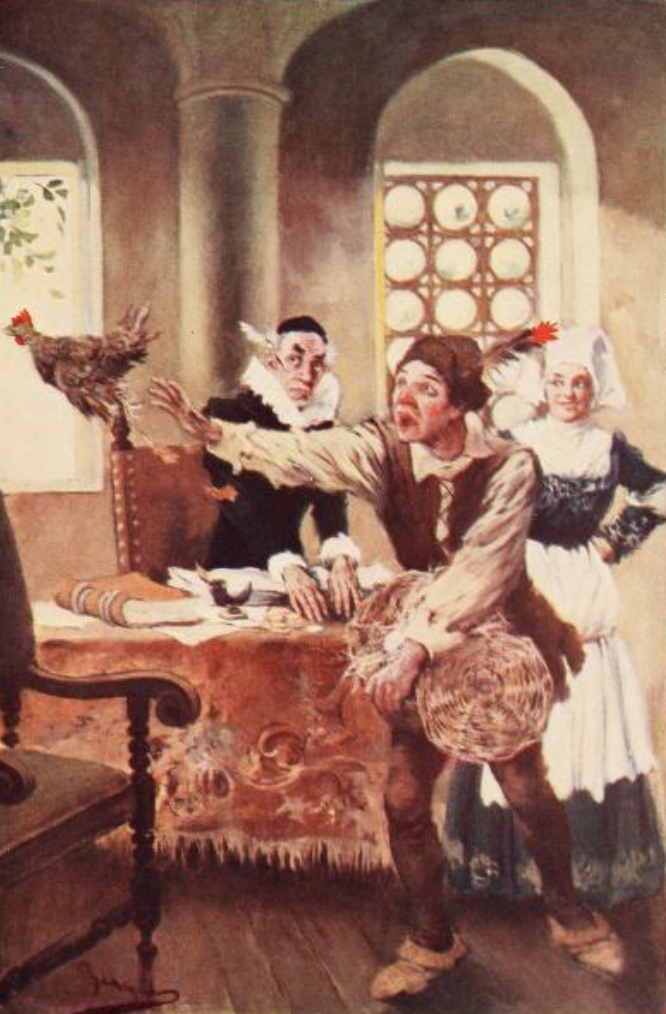
And what with hastening and running and puffing and blowing and going in by-paths and climbing over stiles, and pushing through hedges and bushes and brambles, the good dame and Hodge were the first in the castle hall after the great door was open and the steward had sat down in his place.
“‘As sure as Hodge’s rent.’ ‘Tis a good saying,” quoth the steward.
“It was,” groaned Hodge; and he would have been out with the whole tale had it not been for the goodwife.
‘Aye, sir,” said she, dropping a curtsy as she spoke; ‘and ’tis a good friend you have been to us. Many’s the time I have said to Hodge, ‘The steward is our friend.’ And we have brought the silver. Here it is, hard earned, hard saved. One pound and a sixpence. The bairns have rubbed the sixpence till it shines. And here’s the hen, a bonny brown hen. Our Jenny, she’s our youngest, could not bear for the brown hen to go with her legs tied and her head hanging down like any common fowl. ‘Mammy,’ said she, ‘let her go in a basket.’ So she sits in a basket like a queen.
“Lift the lid a bit, Hodge,” said the goodwife, “that the steward may see the brown hen.”
“Yes!” said poor Hodge, and he was just lifting the lid when hey day! up flew the brown hen in a flurry.
“Cut, cut, cah-dali-cut!” she called as saucy and as free as if she were in Hodge’s barnyard instead of a lord’s castle. “Cut, cut, cah-dah-cut!’
And there in the bottom of the basket, what should Hodge and his good dame spy but an egg as white as milk and as fine as silk!
“‘Tis a grand hen that we have brought you, as you shall see when Hodge has caught her,” said Hodge’s wife. “And sixteen eggs!’
“Aye,” said Hodge, coming up a bit out of breath but with the brown hen in his arms; “the whole rent, pound, pence, hen, and eggs, paid on time just as my father and my grandfather paid,” said he.
And having finished his business, he gave place at the steward’s table for Simpkin, who was just coming in at the door.

